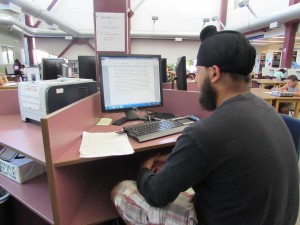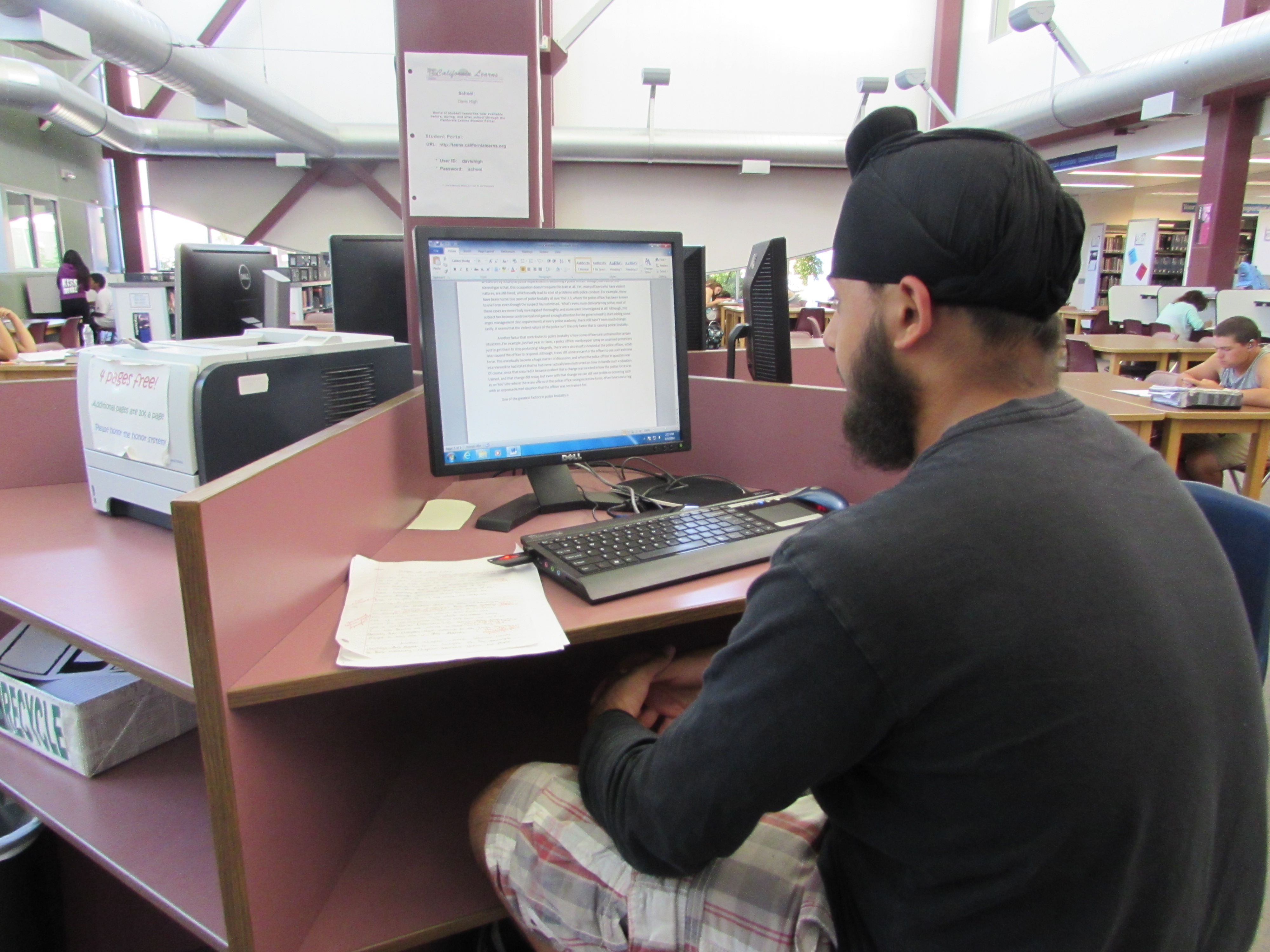SOPHOMORE ORIENTATION: Students reflect on academic transition
Sources: Bruce Cummings, Julie Clayton, James Curley, Marie Michel, Eugenea Raychaudhuri.
By Chloe Sommer and Lily Holmes,
Bluedevilhub.com Staff–
The transition from junior to senior high school is one of the biggest steps in every Davis student’s academic career. School campus is suddenly bigger, time management skills become more important and grades begin to hold more value.
“It does feel larger and more impersonal. Initially, sometimes it’s intimidating,” Counselor Ann Crook said of Davis High. Crook added that sophomores are welcome to ask the counseling department for academic advice at the beginning of the year, and many do.
Although the Davis Joint Unified School District homework policy grants the same time allowances for homework in ninth grade as in tenth through twelfth grade, the new school environment can add extra stress on students.
“There’s pressure knowing that you’re one year closer to graduation and SATs,” senior Sean Li said.
History teacher Bill Williams believes that “less hand holding” is a difficult part of the academic transition.
“The teachers, because of the set-up, are more personal with students at junior highs,” Williams said.
According to Williams, who has taught seventh through twelfth grade students, high school teachers generally give fewer reminders about assignment and project due dates than junior high teachers do.
“Organization is a huge thing for some kids. Students need to open up their preview [the calendar in their planner] to a month for larger assignments. Plan it out!” Crook said.
English teacher Ashley Hamrick says that most students can count on being overwhelmed with work by October. But creating an action plan and taking advantage of the many available resources on campus can make work easier to manage.
Senior Alex Lerman recommends going to the Academic Center for tutoring. “When I need [help] I can just ask and they’ll help me,” Lerman said. The Academic Center also offers computers and free printing.
Student clubs provide another resource. Math and Science Tutors and the DHS Language Tutors Club connect knowledgeable students with peers who need assistance.
“Don’t sit back and drown,” Crook said. “Ask for help.”
“We [all] should speak up when we need help,” Hamrick said. “Teachers appreciate your honesty.”
English teacher Spencer Elliott knows that few students arrive completely prepared for high school academics. “You expect people to not be able to meet expectations [at first] but to come with the skill set and potential to meet expectations,” Elliott said.

Sometimes, those expectations can be challenging to meet. But resources such as peer tutors and even DHS itself can help! The library, Career Center and Academic Center all offer a variety of resources for students. Computers, internet, textbooks, paper and more are all available on campus.
But Elliott says an important factor to academic success can simply be participation. “My advice would be to take chances by raising your hand and sharing great ideas,” Elliot said.



